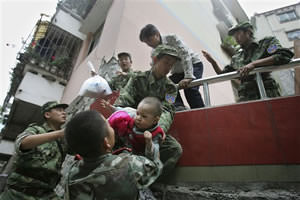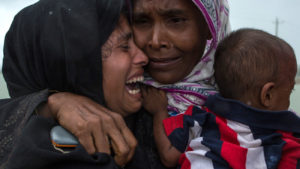U.S. Donations to Burma, China Tighten Up
Americans apparently have a track record of opening their wallets to assist those in need after natural disasters at home and abroad. That was the case, at least, after the 2004 tsunami in Asia and Hurricane Katrina in the U.S. in 2005. But the picture looks different in the wake of the recent cyclone in Burma and the earthquake in China, leaving international trend-watchers asking: What gives?
Americans apparently have a track record of opening their wallets to assist those in need after natural disasters at home and abroad. That was the case, at least, after the 2004 tsunami in Asia and Hurricane Katrina in the U.S. in 2005. But the picture looks different in the wake of the recent cyclone in Burma and the earthquake in China, leaving international trend-watchers asking: What gives?
Your support matters…The Washington Post:
But the simple fact is this: In the weeks since a cyclone laid waste to Burma’s delta region and an earthquake devastated a central Chinese province — catastrophes that collectively left 184,000 people dead or missing and displaced millions — Americans have donated an estimated $57 million to disaster relief charities as of yesterday.
Compare that with the $207 million that Americans donated in the first five days after an Indian Ocean tsunami struck southern Asia in 2004. Or the $226 million raised in five days after hurricanes Katrina and Rita devastated the Gulf Coast.
Independent journalism is under threat and overshadowed by heavily funded mainstream media.
You can help level the playing field. Become a member.
Your tax-deductible contribution keeps us digging beneath the headlines to give you thought-provoking, investigative reporting and analysis that unearths what's really happening- without compromise.
Give today to support our courageous, independent journalists.




You need to be a supporter to comment.
There are currently no responses to this article.
Be the first to respond.